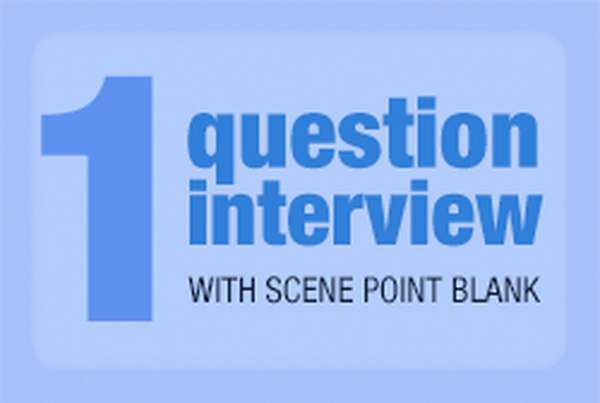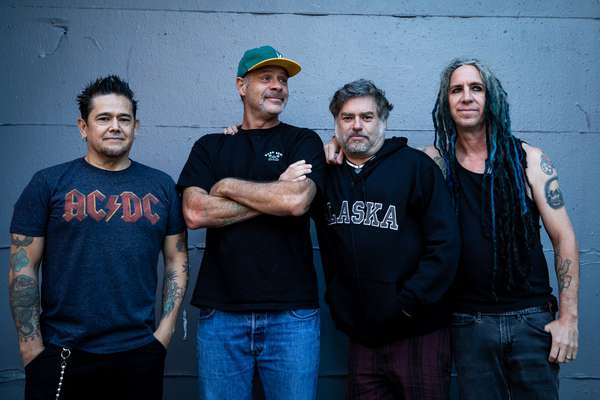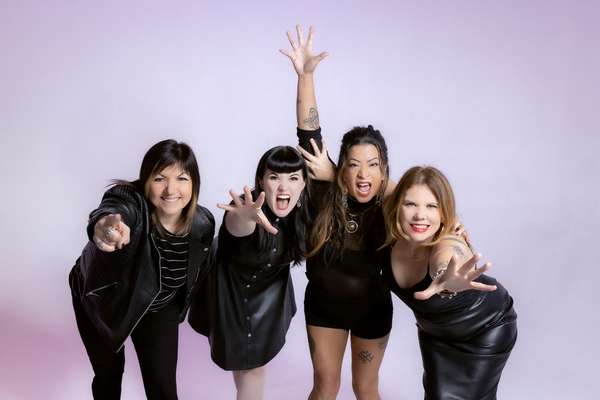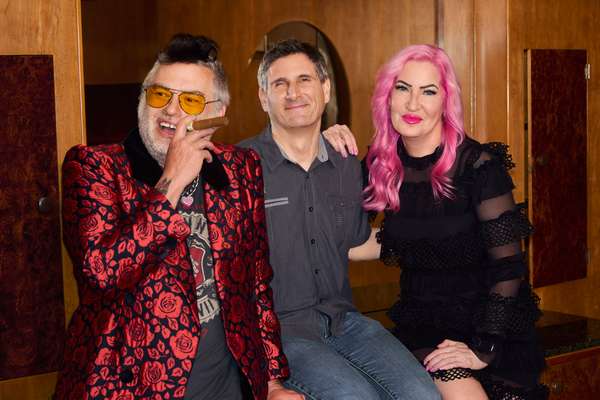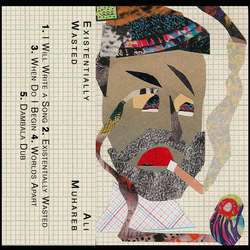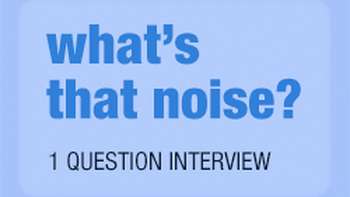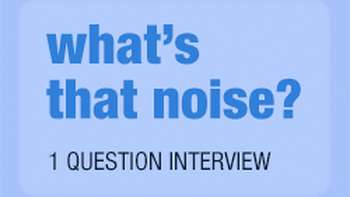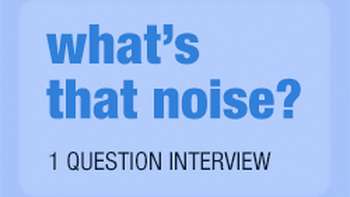Jack (toyGuitar)
SPB: What’s the story behind your name?
Jack: There isn't much backstory on this one. I think I stole the idea of the name "toy guitar" from Spike Slawson or Kent Jamieson (NOFX tour manager). I can't remember which of those two had it first. It was either something like Spike was playing in a kids band or Kent and I were gonna start a kids band and so that name was sorta floating around. It was soooo long ago. But yeah, it's got a very not serious ring to it, which I really like. There were some other names kicked around briefly, but I think everyone kinda liked toyGuitar. The whole one word, upper/lower case thing started shortly after to make it a little more unique, I guess--and it stuck. So, there you have it, the linguistic history of "toyGuitar".
BJ Moore (Crab Legs)
SPB: What’s the biggest secret about the Fargo scene (unbeknownst to outsiders)?
BJ: So, that question could be answered numerous ways, but since every member of Crab Legs plays in at least one other band, I focused on the music scene here.
What’s the biggest secret about the Fargo scene?
That a growing, supportive music scene actually exists here would surprise a lot of people. Fortunately it does, and there are some great people, great bands, and a few very supportive venues here.
Besides being known for a stupid movie involving a woodchipper, its drunkenness, or it' college football team, Fargo is home to numerous bands of various genres. There are so many choices: doom (Egypt, Benefactor), pop punk (Crab Legs, High Hopes), melodic hardcore (Baltic to Boardwalk, Bergeron), catchy punk rock (What Kingswood Needs, SuperCruiser), d-beat (Narcissistic Youth, Shit On Top Of Shit), heavy hardcore (Swing Low, Atrocities), or some good ol' grindcore (Gorgatron). There's a great indie scene, a smaller folk scene, and numerous noise projects are popping up.
A lot of the bands that I mentioned spend a lot of time on the road, besides working day jobs, booking shows, and, for some, volunteering at a local all ages venue, the New Direction.
The New Direction hosts numerous touring punk, hardcore, metal, and indie bands of all sizes. The Aquarium bar hosts similar bands, and you can enjoy your music loud with a few beers there. The Red Raven Coffee House hosts a lot of folk, indie, and acoustic acts, as well.
Fargo may not be as big as Minneapolis, and it might be a frozen winter wasteland for far too long each year, but its scene is our little secret that we get to nourish and take great pride in.
Craig Taylor-Broad
SPB: All creative people invest something of themselves into their work, but this seems especially true with regard to your solo work. Do you find it difficult to get into the right mood or mindset to perform these songs either when recording or in a live setting?
Craig: I think in terms of playing my songs live, the hardest thing is keeping a leash on the moment. Even old songs that aren't exactly relevant anymore spark a memory. There have been some intimate gigs where I'm halfway through a song and it's affecting me, and I can see it's affecting the audience also. The hardest thing then is not falling apart in the moment, holding back those tears I can feel burning into my eyes, and finish the set!
I think the biggest difficultly for me is creating, playing gigs, recording, and not letting the nature of my songs, the emotion of them affect my current mood. The hardest thing isn't so much getting in the right frame of mind to play emotional songs but having the ability to disconnect from them once the performance has past. It's something I've always struggled with, and continue to do so.
Ali Muhareb
SPB: It seems like there's been renewed interest in psychedelic music in recent years. Have you noticed any differences between the psychedelic scene in the United States and that which you've encountered while touring overseas?
Ali: I find the question you asked me very interesting! It's got me thinkin' all sorts of thoughts. Nostalgic memories of my travels aside, this question has got me trying to figure out what exactly “psychedelic music” is. It's more than delay and reverb drenched vocals/instrumentation, it's forward thinking yet heavily indebted to tropes and stylistic choices of the past. I'm trying to find out what things cannot qualify as psychedelic(is there such a thing as psychedelic noise? psychedelic new-age?)...
One thing's for certain: it is a movement and it is growing. With psych fests popping up all over from Portland, Oregon to Seattle, Washington, from Austin, Texas to Liverpool, England...it's a huge movement.
One of the better shows I had the pleasure of seeing was in Milan, Italy. I had played a show at this venue called Cox 18 (a wonderful venue inside an anarchist squat) and had such a blast that I decided to stay a few extra days and explore the city. Luckily, La Societa Psychedelica were throwing a second show that month and I got to catch Black Bombaim and The Cosmic Dead a couple nights later. They fucking rocked. What struck me was that, even though these bands were from Portugal and Scotland, they would absolutely destroy on stage in my hometown and many others in the US. Same experience I had when I played with Mary and The Hookers (split, some members now go by Dead Vibrations) that their understanding of psychedelic music was very similar to ours. I guess this shouldn't have been a shock - psychedelic music first emerged in the US, so it makes sense that it's all got a unified sound...
That is a terribly long answer to the question, here's a TL;DR
I did not really notice a big difference between the psychedelic scene I've encountered in the US and those that I encountered overseas. It's a cool, inclusive, international movement and it's bringing people together from all sorts of backgrounds and I can only hope that it becomes more inclusive.
But then again, what is “psychedelic” music? I'm not sure I know, but psych fests always have the coolest show flyers.
